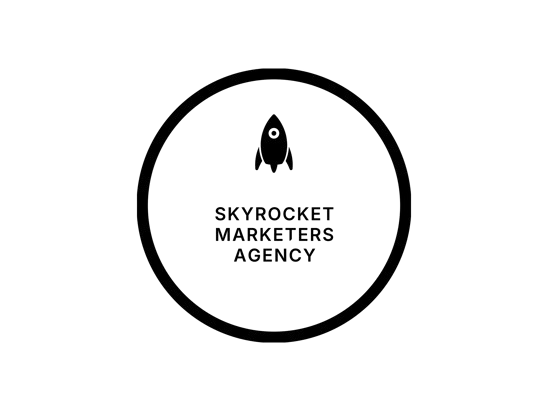How to Build a Bilingual Website for the Cyprus Market (Greek & English)
WEB DESIGN
9/10/20254 min read


On an island where cultures have intertwined for centuries, the question of language is never far from daily life. In Cyprus, Greek and English exist side by side, shaping conversations in cafés, business meetings in Nicosia, and holiday bookings along the coast of Paphos. For entrepreneurs and business owners, this linguistic duality presents both a challenge and an opportunity. A website that speaks only one language risks alienating half its audience. A website that speaks both Greek and English, however, extends a hand to locals and international visitors alike, embodying the inclusive spirit of the island itself.
The journey of building a bilingual website begins with a recognition of who the audience is. Greek remains the heartbeat of everyday communication for locals, a marker of identity and community. Yet English plays a pivotal role in tourism, commerce, and professional services, serving as the bridge for millions of visitors each year and a lingua franca for international business. A hotel in Limassol, a law firm in Larnaca, or a restaurant in Ayia Napa cannot afford to prioritize one language at the expense of the other. To thrive, they must meet their customers where they are linguistically, ensuring that everyone feels seen, understood, and welcomed.
Designing such a website requires more than simply pasting translations side by side. It is about creating an experience where the user can seamlessly navigate between languages without confusion or frustration. A thoughtful bilingual website offers visitors the choice from the very beginning. The language toggle is not hidden at the bottom of a page, but placed where it feels natural and inviting, often at the top corner of the screen. This choice respects the visitor’s preference while communicating that the business values inclusivity.
Translation, too, must be treated as more than a technical task. A mechanical or poorly considered translation risks distorting meaning and alienating users. In Cyprus, where cultural nuances matter, accuracy and sensitivity are essential. A property developer advertising homes in Paphos must ensure that the Greek version speaks naturally to locals, while the English version reflects clarity and professionalism for foreign buyers. Idioms, tone, and cultural references must adapt to each audience without losing the identity of the brand. Many successful Cypriot businesses therefore rely on professional translators or bilingual content creators to ensure that both languages carry the same weight of authenticity.
Search engine optimization adds another layer to the process. Search habits differ between Greek-speaking locals and English-speaking tourists or expatriates. A bakery in Nicosia may be discovered through Greek search terms like “φούρνος Λευκωσία,” while international visitors may search “best bakery Nicosia.” A bilingual website, if properly structured, captures both markets by integrating keywords in each language, ensuring visibility across search engines for diverse audiences. Without this, a business risks being invisible to half of its potential customers.
The technical structure of a bilingual site also influences its success. Search engines such as Google rely on clear signals to understand which version of a page belongs to which language. Proper implementation of language tags ensures that the Greek version is delivered to Greek speakers and the English version to English speakers. Without this clarity, search engines may misinterpret the site, undermining visibility. In the competitive environment of Cyprus, where small differences can determine whether a business is discovered or overlooked, technical precision is as important as design.
Beyond search engines, user experience itself is shaped by how smoothly a visitor can switch languages. A bilingual site should feel cohesive, with design elements, navigation menus, and calls to action aligned across versions. If a tourist browsing in English decides to change to Greek, the transition should be instant, bringing them to the equivalent page rather than forcing them to start again from the homepage. This sense of continuity builds trust and reinforces the professionalism of the business.
Cultural inclusivity is perhaps the most intangible yet vital element. Cyprus is not just a place where two languages coexist—it is a society where locals and visitors, Greek heritage and global modernity, intermingle every day. A bilingual website reflects this reality. It sends a subtle but powerful message: this business understands the island, values diversity, and is prepared to engage with everyone who walks through its virtual door. A Limassol café with menus in both Greek and English, a Larnaca clinic with appointment forms in both languages, or a Paphos hotel with bilingual booking pages all embody this openness.
The benefits of building such a website are immediate. Locals feel respected when addressed in their native tongue, while international clients appreciate the clarity and convenience of English. Tourists searching for tours or dining options are more likely to book when they can understand every detail without confusion. Over time, this inclusivity strengthens brand reputation and customer loyalty. In a small but highly competitive market like Cyprus, where word-of-mouth and first impressions carry immense weight, these advantages are invaluable.
At its core, building a bilingual website for the Cyprus market is not merely about technology or design. It is about identity, communication, and connection. It acknowledges the island’s unique cultural landscape and positions a business as both locally rooted and globally accessible. For entrepreneurs, it represents an investment not only in visibility but in credibility, signaling that they are prepared to serve every segment of their audience with care and respect.
Maria, the entrepreneur from Nicosia, eventually recognized this truth. When she expanded her website for her handmade jewelry business to include both Greek and English, she noticed a change. Local customers felt a stronger sense of belonging, while international buyers, often tourists who had discovered her brand during their holidays, found it easier to place orders. Her website became not just a storefront, but a bridge—uniting communities, languages, and markets under one brand.
For business owners across Cyprus, the lesson is clear. A bilingual website is not simply a technical feature but a strategic necessity. It captures the dual heartbeat of the island, ensuring that no customer is left out of the conversation. In a world where first impressions are increasingly made online, the ability to speak fluently in both Greek and English is not just an advantage—it is a pathway to lasting success.
Contact
info@skyrocketmarketers.com
+357 96166570
2026 Skyrocket Marketers © All Rights Reserved.
Limassol Office
Victory House, Arch. Makarios III Avenue 205, Limassol, 3030
Nicosia Office
Digenis Ave 81-83 Grivas 1st, 5th Floors, Nicosia, 1090
Useful Links
Top Digital Marketing Agencies For Financial Services
Everneed AI Receives AI Software Recognition
GURU OF THE DAY: Web Design Award
King Of The Day: Web Design Award
Cyprus Digital Marketing Summit 2026
Cyprus Videographer/Photographer


NEWSLETTER
EVERNEED AI LTD


